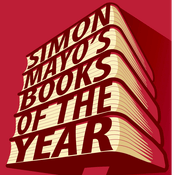19 episodes
Huda Tayob on how an apartheid-era film captures a lost neighbourhood: CCA x AR Bookshelf
23/8/2024 | 10 mins.In this episode, architectural historian, writer and educator Huda Tayob takes us to the now destroyed Sophiatown in Johannesburg, South Africa, through recordings of the neighbourhood found in the 1959 film Come Back Africa.
This AR Bookshelf episode is part of a collaboration between The Architectural Review and the Canadian Centre for Architecture (CCA) around the book Fugitive Archives: A Sourcebook for Centring Africa in Histories of Architecture, published following the CCA’s Centring Africa research project. In each episode of this short series, a researcher from the publication tells the story of a place based on sources traditionally overlooked by western archives. Forming a fugitive archive itself, the episodes study both the places themselves and the media – better suited to podcast than paper – that document and describe them.
Fugitive Archives is edited by Claire Lubell and Rafico Ruiz, and co-published with Jap Sam Books (October 2023).Dele Adeyemo on highlife music and the rise of a modernist Ghanaian hotel: CCA x AR Bookshelf
23/8/2024 | 9 mins.In this episode, architect, artist and critical urban theorist Dele Adeyemo takes us to the modernist Meridian Hotel in Tema New Town in Ghana. The 1975 song Meridian by Ghanaian group Wulomei provides evidence of its former grandeur and the ambition of post-independence Ghana – evidence that cannot be found in traditional archives.
This AR Bookshelf episode is part of a collaboration between The Architectural Review and the Canadian Centre for Architecture (CCA) around the book Fugitive Archives: A Sourcebook for Centring Africa in Histories of Architecture, published following the CCA’s Centring Africa research project. In each episode of this short series, a researcher from the publication tells the story of a place based on sources traditionally overlooked by western archives. Forming a fugitive archive itself, the episodes study both the places themselves and the media – better suited to podcast than paper – that document and describe them.
Fugitive Archives is edited by Claire Lubell and Rafico Ruiz, and co-published with Jap Sam Books (October 2023).- The Architectural Review is joined in this episode of the AR Ecologies by the Canadian Centre for Architecture, as we follow the research of CCA's ‘How to: do no harm’ residency, curated by Lev Bratishenko and Charlotte Malterre-Barthes.
AR host Ellen Peirson looks at the harm that architects do to land, cities, materials and workers. Stories from Sahar Shah, Guujaaw, Sename Koffi Agbodjinou and Jess Myers weave together an honest argument about how harmful it is to exist in this ecological age. Once we acknowledge that we can’t create without extracting, we can start transforming our ways of working to make them regenerative. From the oil pipelines snaking through Canada, the search for an architectural identity in the globalising cities in Togo, the labour organising happening in classrooms and workplaces and the unceded lands of the Haida Nation in British Columbia, these truths hurt. Architects want to find new ways to practise architecture on this scarred planet. To do no harm. But is this possible?
AR Ecologies, a podcast by the Architectural Review, explores the tension between architecture and ecology through critical positions which launch each chapter. Instead of standalone interviews, each episode weaves curious and critical voices together to meet, discuss and give space to perspectives outside an architectural orbit. This episode is an audio counterpart to our October 2022 issue on Energy, while the first season revolved around trees, an audio counterpart to our October 2021 issue on Trees. The publication that was produced during the ‘How to do no harm residency’ in September can be found here, and the transcript for this podcast can be found here. - The Architectural Review is joined in this episode by the Canadian Centre for Architecture. On our bookshelf in this chapter is the CCA's CP138 Gordon Matta-Clark: Readings of the archive by Yann Chateigné, Kitty Scott and Hila Peleg, co-published with Koenig Books in July 2020. This episode dwells on the peripheries of Matta-Clark's work – in his library, his travel snaps, and his discarded film footage – to reveal the value that hides in the margins and on the cutting room floor: our future on this planet could depend on it.
Guests include Francesco Garutti (Curator of Contemporary Architecture, CCA), Yann Chateigné (curator and writer), Kitty Scott (Deputy Director and Chief Curator, National Gallery of Canada) and Laura Phipps (Assistant Curator at the Whitney Museum of American Art).
In collaboration with the CCA, we have carefully selected from their recent and upcoming publications to place on our bookshelf, to tell their stories, and reach outside their pages, taking them for a walk. CP138 Gordon Matta-Clark: Readings of the archive is the culmination of three exhibitions held at the CCA between June 2019 and September last year that were part of the CCA’s continued Out of the Box series. The exhibition series is now being expanded through a new instalment, created in dialogue with the Generali Foundation Collection and on view until 6 March at the Museum der Moderne Salzburg. The book is available to purchase at the CCA's online store now. - Completing the tree-filled trilogy, the AR turns to focus on timber, our fundamental link between trees and architecture. Timber, especially mass timber - is seen to be one of the most ecologically sustainable building materials and an obvious alternative in construction. But when a virtuous material is used to replicate capitalist models, the result can exacerbate, rather than counter the climate catastrophe. Scientist Suzanne Simard, architecture historian Erin Putalik and engineer Maria Smith share their projects, voices and perspectives on how we see, build and ultimately grow trees to operate in the same world that preserves and produces this essential building block of our existence. Hosted by Sabrina Syed.
AR Ecologies, a podcast by The Architectural Review, explores the tension between architecture and ecology through critical positions. Instead of standalone interviews, each episode weaves curious and critical voices together to meet, discuss and give space to perspectives outside an architectural orbit. The first series revolves around trees, an audio counterpart to the AR October 2021 issue, available now.
More Arts podcasts
Trending Arts podcasts
About The Architectural Review Podcast
The Architectural Review Podcast extends the conversation outside the pages of the print magazine, with fearless storytelling, independent critical voices and thought-provoking architecture from around the world since 1896. The AR Bookshelf series invites the most interesting and influential names in architecture to put books on an imaginary bookshelf and tell us their story, and AR Reads brings you a piece from our vast archive, while AR Ecologies explores the tension between architecture and ecology, weaving curious and critical voices together to debunk the most important questions of our time.
Podcast websiteListen to The Architectural Review Podcast, Table Manners with Jessie and Lennie Ware and many other podcasts from around the world with the radio.net app

Get the free radio.net app
- Stations and podcasts to bookmark
- Stream via Wi-Fi or Bluetooth
- Supports Carplay & Android Auto
- Many other app features
Get the free radio.net app
- Stations and podcasts to bookmark
- Stream via Wi-Fi or Bluetooth
- Supports Carplay & Android Auto
- Many other app features


The Architectural Review Podcast
Scan code,
download the app,
start listening.
download the app,
start listening.





































